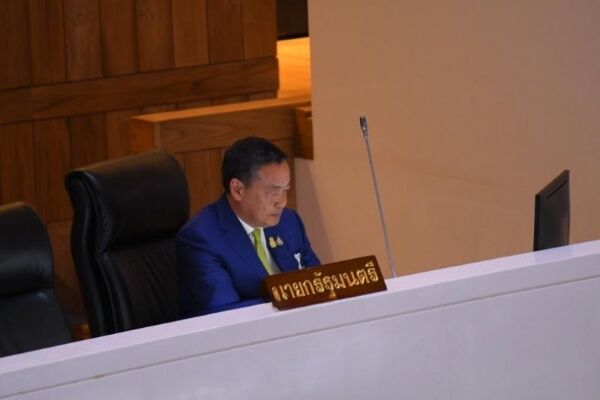PM Srettha unveils 3 trillion baht economic boost plan

Prime Minister Srettha Thavisin rolled out a mammoth 3.753-trillion-baht economic revival blueprint aimed at turbocharging Thailand’s financial fortunes. As lawmakers embarked on a heated three-day debate, the Bangkok-born Thai PM pitched his vision to rejuvenate the sluggish economy, promising a surge in growth.
In a bid to unleash Thailand’s economic potential, Prime Minister Srettha Thavisin proposed a hefty 3.753 trillion baht budget for the 2025 fiscal year. Addressing the House of Representatives, the Thai premier articulated his strategy to kickstart growth.
“The budget has now been disbursed and we will discuss ways to ensure it is spent as quickly as possible.”
Highlighting projections, the 62 year old prime minister outlined an anticipated economic upswing of 2.5% to 3.5% next year, coupled with a moderate inflation forecast ranging from 0.7% to 1.7%. Despite earlier optimism for a fourth-quarter rebound, the government now shifts focus to ramping up third-quarter economic expansion, reported Bangkok Post.
In related news, Thailand has rocketed up the global competitiveness rankings, leaving Malaysia in the dust and securing the second spot in ASEAN. The IMD World Competitiveness Centre’s 2024 report catapulted Thailand from 30th to 25th place worldwide, highlighting a significant leap in economic performance.
Danucha Pichayanan, the Secretary-General of the National Economic and Social Development Council, briefed the Cabinet yesterday regarding this impressive advancement. The ranking assessed 67 economic zones, and Thailand’s rise was remarkable.
In other news, Deputy Finance Minister Julapun Amornvivat urged the Commerce Ministry to reconsider its decision to permit recipients of the 10,000-baht payout from the digital wallet scheme to use the funds on mobile phones. He argued that this move would not benefit the domestic economy as intended.
PM Srettha shares these concerns, noting that most mobile phones are either manufactured overseas or contain foreign-made components. Allowing the payout to be spent on imported items such as mobile phones could undermine the scheme’s goal of stimulating local spending and boosting the domestic economy.
Latest Thailand News
Follow The Thaiger on Google News:


























